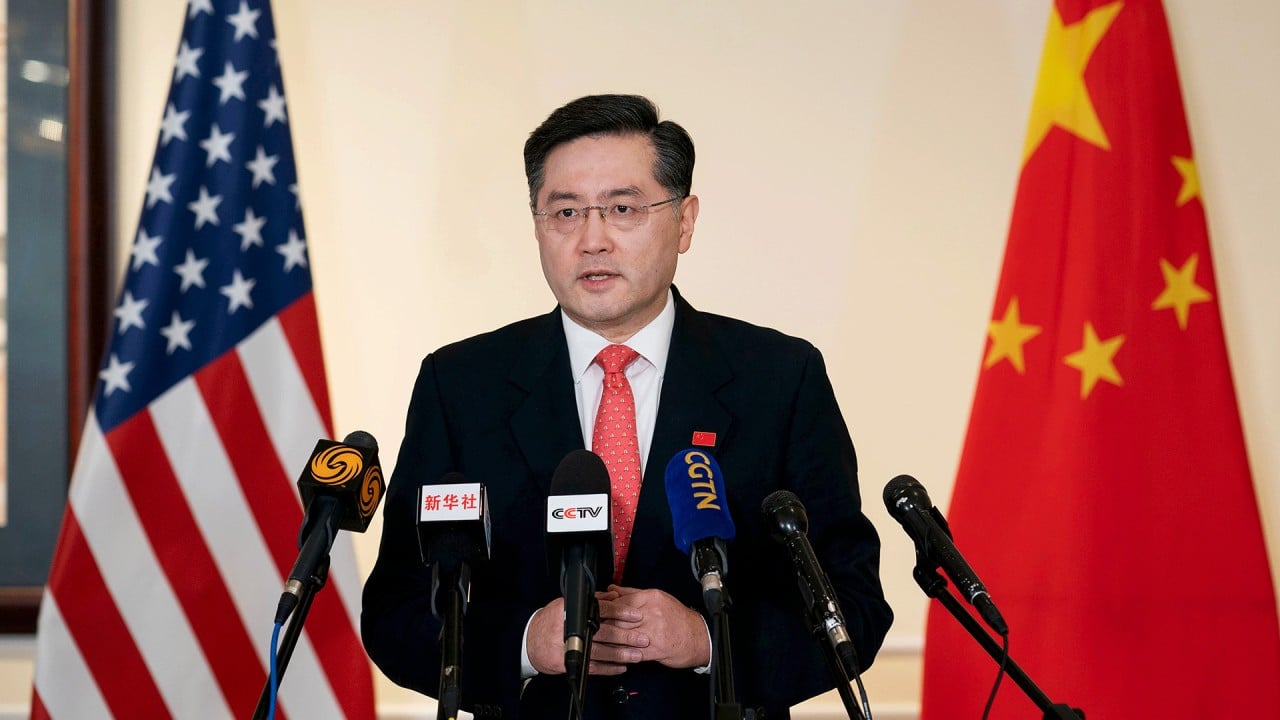
US-China relations: new foreign minister Qin Gang offers some hope for calmer days ahead
- It’s unlikely that China’s policy will change much under Qin as he isn’t in a position to call the shots, but his appointment represents a welcome change of tone and hope of some reversal in an increasingly fraught relationship
Diplomats are tasked to perform for their countries, and sometimes it is not the hard delivery of policy under the spotlight but the soft public relations efforts on the sidelines that bear the most fruit. This was certainly the case during Qin’s tenure as China’s ambassador to the United States.
He didn’t achieve much in terms of improving bilateral relations as things haven’t been worse in quite some time, though it might be remarked that his affable, unruffled presence helped to slow down the rapidly descending spiral of decoupling and mutual disdain.
On the other hand, sometimes being snubbed can lead to looking for other ways in. To the extent that Qin got nowhere inside the Beltway, it was a boon to his subsequent efforts at state PR events and connecting with Americans in far-flung places across the country.
In Provo, Utah, he attended a musical event of Brigham Young University’s Young Ambassadors dedicated to international friendship. This event had a rich resonance because it was attended by the original cohort of the no-longer-young youthful idealists who visited China in 1979 at the dawn of US-China relations. It was a PR stunt, of course, but it was carefully chosen and carried a symbolic meaning greater than the event itself.
Qin Gang’s Twitter feed is kinder and gentler than that. While one can detect no serious deviation from the party line that all Foreign Ministry personnel are expected to follow, there is a hopefulness in tone that is absent in the Twitter missives of his peers.
He likes to pun and is often corny, but corn is better than vitriol: “Pandas are not endangered any more! I hope panda huggers will not, either.”
Panda diplomacy: the latest chapter for a safe space in US-China relations
Does brash Zhao Lijian really speak for the Chinese government?
Now that is a real diplomat talking. His words offer the slender but not inconsequential hope that US-China relations might improve in tone, and perhaps content, when he assumes titular control of China’s foreign ministry.
Philip J. Cunningham has been a regular visitor to China since 1983, working as a tour guide, TV producer, freelance writer, independent scholar and teacher


